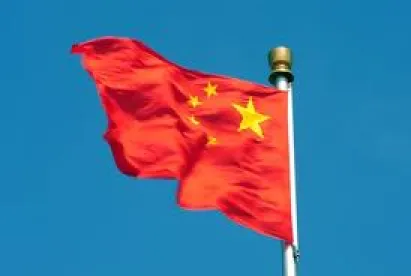On October 17, 2020, the Standing Committee of the National People’s Congress of China passed and adopted the Export Control Law of China (the ECL), which took effect on December 1, 2020.
Prior to the enactment of the ECL, China regulated imports and exports with control measures and requirements scattered throughout different laws and regulations, including the Foreign Trade Law, the Customs Law, and the Criminal Law, as well as through regulations on the catalogues of technologies and products prohibited or restricted from import or export. The ECL is the first Chinese law that establishes a comprehensive framework for China’s export control regulations and creates an integrated export control regime. China enacted the ECL to protect their national security and interests, and to further their commitment to nonproliferation and anti-terrorism.
The earliest draft of the ECL was circulated by the Ministry of Commerce (MOFCOM) for public comments in June 2017 and was amended twice in December 2019 and July 2020, respectively, within the context of escalating trade tensions with certain export markets, particularly the United States.
As a general law comprising 49 articles, the ECL sets out principle provisions, but has left certain questions unanswered. Various areas of the ECL will need to be supplemented by implementing rules and judicial interpretations. A variety of current laws and regulations will also need to be amended for the purpose of consistency.
Administrative Authorities and Control System
The State Council and Central Military Commission (中央军委) will be the relevant administrative authorities under the ECL. MOFCOM has been and will continue being the major department under the State Council that enforces China’s export control laws.
Under the ECL, controlled items are classified as follows and are subject to a license management system:
- “dual-use” items: refers to goods, technologies and services that can be used for civil purposes as well as for military purposes, or that can help improve military potentials, in particular those that can be used for the design, development, manufacturing or use of weapons of mass destruction and their delivery vehicles;
- military products: refers to equipment, special production devices and other related goods, technologies and services that are used for military purposes;
- nuclear: refers to nuclear materials, nuclear equipment, non-nuclear materials used for nuclear reactors and the related technologies and services;
- other goods, technologies and services that are related to the protection of national security and interests, or the fulfillment of nonproliferation or other international obligations (collectively, the Controlled Items).
The ECL fails to define “export” but the provisions are widely drafted to cover the “deemed export” and “re-export” that may be similar to the concepts under the Export Administration Regulations of the United States.
Government agencies will consider the following factors to evaluate and determine whether an export license can be granted for a Controlled Item, but no official review timeline has been proposed:
-
national security and interest;
-
international obligations and commitments to foreign parties;
-
type of export;
-
degree of sensitivity of the Controlled Item;
-
export destination country or region;
-
the end-user and end-use;
-
credit records of the exporter; and
-
other factors as prescribed in laws or administrative regulations.
The ECL requires the government agencies in charge to respond to inquiries on whether an item is subject to the export control system in a timely manner. Based on our experience, MOFCOM is friendly and in practice, accessible to take public consultation even on a no-name basis.
Control Lists, Blacklists and Temporary Control
It has been indicated that the ECL will implement a uniform export control regime by developing certain lists of Controlled Items and an export license management system. No such lists have been announced yet but they would potentially stem from the current regulations and catalogues of products or technologies that are prohibited or restricted from export, including:
- Administrative Catalogue of Import and Export License for Dual-use Items and Technologies (两用物项和技术进出口许可证管理目录), jointly promulgated by the MOFCOM and Customs authorities on December 31, 2019;
- Catalogue of Technologies Prohibited and Restricted from Import and Export (中国禁止出口限制出口技术目录), as amended by MOFCOM on August 28, 2020 (collectively, the Catalogues).
The ECL also creates a blacklist of importers and end-users that violate the requirements under the ECL or may endanger national security or interests. Chinese exporters are prohibited or restricted from trading with such blacklisted importers and end-users. This should be read together with the List of Unreliable Entities regulation circulated by MOFCOM on September 19, 2020.
According to the ECL, relevant government agencies may impose a temporary control on certain items that are not on the list of Controlled Items for a period of up to two years, which can be canceled or further extended based on the assessment by such government agencies.
Rules with Chinese Characteristics
The ECL has certain unique, Chinese-specific provisions that may give government authorities in charge a certain degree of discretion. These include:
- Reciprocal measures (对等措施). Depending on the actual situation, China may take reciprocal measures against any country or region whose abuse of export control measures endangers the national security and interests of China. The “national security and interests” are not defined but will be assessed by the government agencies.
- Catch-all clause. If an exporter knows or ought to know, or is notified by the government authorities that any relevant goods, technologies or services outside the control lists may pose any of the following risks, it shall apply to the relevant government agencies for a license to export such items:
- the items endanger national security and interest;
- the items are used to design, develop, manufacturer or use any weapon of mass destruction or its delivery vehicles; or
- the items are used for terrorist purposes.
- General license (通用许可) and other facilitation measures (便利措施). Exporters may be granted a general license or other facilitation measures if the exporters have established an internal export control compliance system and if such system operates well. Details may be developed in the implementing rules.
Extraterritorial Reach (域外适用)
The ECL is extraterritorial in scope. It is applicable to individuals and organizations outside the territory of China that are in violation of the regulatory requirements under the ECL, which endangers the national security interests of China or interferes with the performance of their nonproliferation or other international obligations.
How to Respond
While the ECL provisions are general and the implementing rules have not been published, China will likely strengthen their export control measures and enact or amend the relevant laws and regulations in due course. As such, export operators and stakeholders should consider taking the following actions as soon as possible:
- Evaluate relevant products, technologies or services that may fall under the current Catalogues or that may have security concerns and consult with the MOFCOM on whether an export permit is required as the “catch-all” clause of the ECL imposes obligations to report;
- Consider establishing or strengthening the internal export control compliance system to qualify for the general license or other facilitation measures;
- If certain products, technologies or services are subject to the current Catalogues or have security concerns, start to gather the certification documents from end-users or for end-uses to be issued by the end-users or the government of foreign countries where the end-users are located;
- Keep a close eye on the development of implementing rules as well as collect information from suppliers, vendors and other resources on any change of current commercial practices.





 />i
/>i

